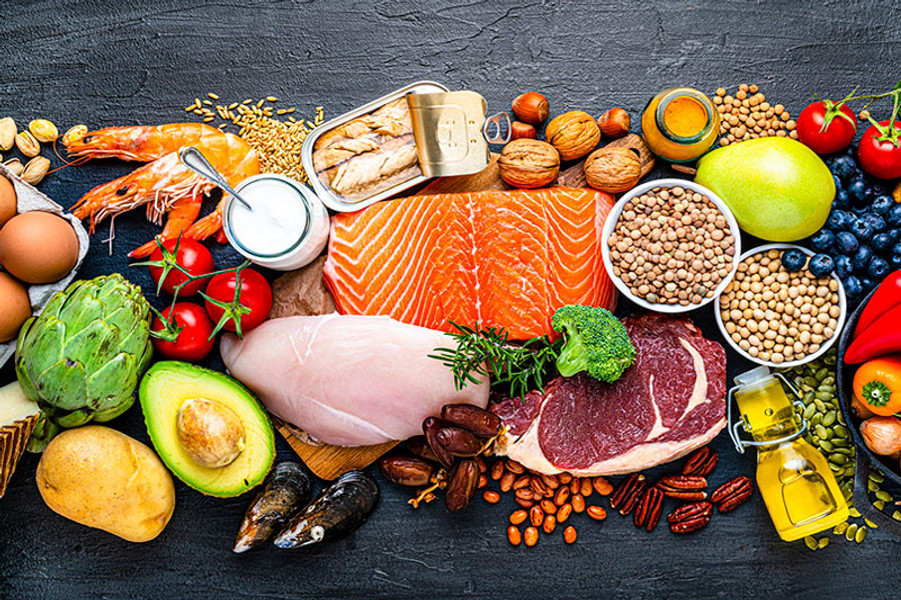Inflammation can be a double-edged sword. While it’s a natural part of your body’s healing process, chronic inflammation quietly fuels many health issues, from heart disease to joint pain. The most exciting news? Your grocery list might be your best weapon for reducing inflammation and feeling your best.
Let’s explore the top anti-inflammatory foods you should reach for the next time you shop—plus simple ways to enjoy them every day. Whether your goal is preventing disease, managing an existing condition, or simply enjoying a more energetic life, these foods offer natural support.
Why Focus on Anti-Inflammatory Foods?
Chronic inflammation is linked to a wide range of disorders, including arthritis, diabetes, cardiovascular disease, and even some cancers. While genetics and lifestyle habits play roles, research shows the foods you eat can powerfully dampen or drive inflammation.
By loading your plate with anti-inflammatory foods, you give your body the nutrients it needs to heal, protect itself, and thrive. It’s a delicious, practical way to care for long-term wellness.
Top Anti-Inflammatory Foods to Add to Your List
1. Berries: Small Fruits, Big Benefits
Berries like blueberries, strawberries, raspberries, and blackberries are rich in antioxidants called anthocyanins. These powerful compounds help lower inflammatory markers in your body.
Add fresh berries to smoothies, oatmeal, or salads, or enjoy a simple bowl for dessert!
2. Leafy Greens: Nature’s Multivitamin
Spinach, kale, Swiss chard, and collard greens are packed with vitamins A, C, and K, as well as magnesium and flavonoids—all proven to reduce inflammation.
Toss greens into salads, blend them into smoothies, or sauté with a little olive oil and garlic for a quick side.
3. Fatty Fish: Omega-3 Powerhouses
Salmon, mackerel, sardines, and trout shine for their abundance of omega-3 fatty acids. Omega-3s are legendary for their anti-inflammatory effects and promote heart, brain, and joint health.
Aim for at least two servings of fatty fish per week. Not a fish fan? Chia seeds and flaxseeds are great plant-based omega-3 options.
4. Turmeric: The Gold Standard
Turmeric contains curcumin, a superstar compound famous for its ability to block inflammation at the molecular level. Just a pinch each day can benefit your body, especially when paired with black pepper to boost absorption.
Stir turmeric into curries, soups, roasted vegetables, or even smoothies for a golden glow and gentle spice.
5. Extra Virgin Olive Oil: Liquid Gold
Extra virgin olive oil is loaded with polyphenols that act as antioxidants and reduce inflammatory signals. It’s a staple of the Mediterranean diet, famed for fostering longevity and health.
Drizzle olive oil on salads, use it to sauté veggies, or finish cooked dishes with a delicate swirl to preserve its nutrients.
6. Nuts and Seeds: Tiny Package, Giant Impact
Walnuts, almonds, chia seeds, flaxseeds, and pumpkin seeds deliver fiber, healthy fats, and a special compound called alpha-linolenic acid (ALA). These nutrients help fight inflammation and support overall heart health.
Snack on a handful of nuts, sprinkle seeds on yogurt, or blend into smoothies.
7. Tomatoes: Versatile and Vibrant
Tomatoes are brimming with lycopene, an antioxidant shown to lower inflammation and support heart health. Eating them cooked, as in tomato sauces or soups, actually boosts lycopene absorption.
Add fresh tomatoes to salads, sandwiches, salsa, or roast them for a rich, concentrated flavor.
8. Cruciferous Vegetables: Detox and Defend
Broccoli, cauliflower, Brussels sprouts, and cabbage are part of the cruciferous family, known for their sulforaphane content. Research shows this plant chemical lowers key inflammatory markers.
Enjoy them roasted, steamed, or raw for crunch in salads and slaws.
9. Ginger: A Spicy Healer
Aromatic ginger contains gingerol, a compound prized for taming inflammation and easing digestive upset. Studies suggest regular ginger intake reduces pain and swelling in conditions like osteoarthritis.
Add grated ginger to tea, stir-fries, marinades, or baked treats for natural zing.
10. Green Tea: Sip Serenity
Green tea is packed with catechins, antioxidants that naturally lower inflammation and support immune health. Sipping one to three cups a day can offer powerful benefits.
Enjoy your tea hot, iced, or in smoothies to boost your routine.
11. Whole Grains: The Right Kind of Carbs
Swapping white bread and rice for whole grains means more fiber and essential nutrients. Oats, quinoa, brown rice, barley, and bulgur keep inflammation at bay while fueling your body with steady energy.
Start your day with oatmeal or use whole grains as a foundation for nourishing bowls and salads.
12. Avocados: Creamy and Healing
Rich in monounsaturated fats, fiber, and antioxidants like lutein, avocados tick all the anti-inflammatory boxes. They’re also filling and versatile.
Mash avocado on toast, dice into salads, or blend into creamy dressings.
Extra Tips for Building an Anti-Inflammatory Shopping List
- Prioritize Color: Deep-colored fruits and vegetables usually contain the most antioxidants.
- Watch Out for Triggers: Reduce processed foods, added sugars, and refined carbs, as they can light the fire of inflammation.
- Go Fresh and Whole: Choose whole foods over pre-packaged items for the biggest perks.
- Add Herbs and Spices: Basil, rosemary, and cinnamon also lend anti-inflammatory powers and boost flavor.
Sample Anti-Inflammatory Grocery List
Here’s a handy sample list to keep on your phone or fridge:
- Fresh berries (blueberries, strawberries, raspberries)
- Leafy greens (spinach, kale)
- Broccoli, Brussels sprouts, cauliflower
- Tomatoes
- Fatty fish (salmon, sardines, mackerel)
- Extra virgin olive oil
- Walnuts, almonds, chia seeds, flaxseeds
- Avocados
- Ginger, turmeric
- Green tea
- Whole grains (oats, quinoa, brown rice)
Feel free to mix and match based on what’s local, seasonal, or fits your taste.
The Real-World Benefits: What the Research Shows
Dozens of studies now confirm that diets rich in anti-inflammatory foods lower your risk for heart disease, diabetes, and some cancers. People who eat a Mediterranean-style diet high in fruits, vegetables, fish, nuts, and olive oil show less inflammation and better heart health compared to those eating more processed or sugary foods.
Incorporating these foods regularly can also help manage chronic conditions. For example, omega-3-rich fish and olive oil may reduce arthritis pain, while berries and leafy greens help regulate blood sugar and boost overall immunity.
Simple Ways to Start
- Introduce at least one anti-inflammatory food to every meal.
- Replace a processed snack with a serving of fresh berries or nuts.
- Drizzle olive oil over roasted vegetables instead of using butter.
- Sip green tea with breakfast or after lunch.
Remember: Small, consistent changes are more sustainable than overhauling your entire diet overnight.
Conclusion: Let Your Food Fuel Health, Healing, and Happiness
Adding anti-inflammatory foods to your grocery list is a flavorful, practical investment in your long-term vitality. With so many vibrant options, your meals will never feel bland or boring.
Choose the colors, flavors, and textures that inspire you. Each trip to the store is a new chance to nourish your mind and body from the inside out.
Ready to reshape your grocery list? Start with one simple swap this week and feel the difference. Your journey to glowing health begins with your next bite!
Harvard Health Publishing
Johns Hopkins Medicine






